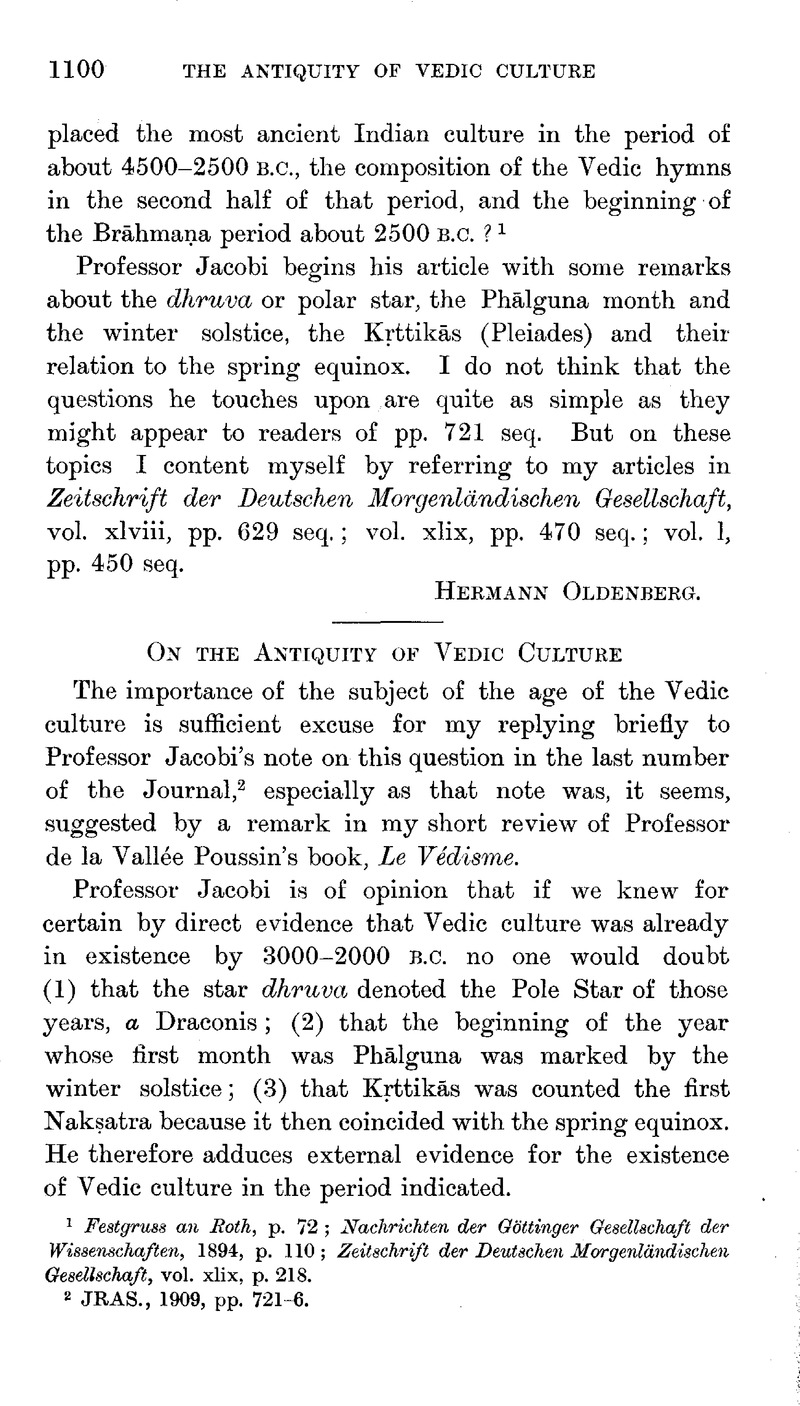No CrossRef data available.
Published online by Cambridge University Press: 15 March 2011

page 1100 note 2 JRAS., 1909, pp. 721–6.Google Scholar
page 1101 note 1 Cf. IA., xxiv, 100.Google Scholar
page 1101 note 2 Whitney, , PAOS., March, 1894;Google ScholarOldenberg, , ZDMG., xlviii–l;Google ScholarThibaut, , IA., xxiv, 85 seq.Google Scholar
page 1101 note 3 See SBE., xv, 289:Google ScholarWeber, , Indischz Sludien, ii, 396;Google ScholarBühler, , IA., xxiii, 245, n. 21Google Scholar; Jacobi, , ZDMG., xlix, 228, n. 2.Google Scholar
page 1101 note 4 Jacobi, , IA., xxiii, 157.Google Scholar
page 1102 note 1 See Thibaut's convincing refutation of Hindu accuracy, IA., xxiv, 99.Google Scholar
page 1102 note 2 Jacobi, , IA., xxiii, 157.Google Scholar His observations on this point at ZDMG., xlix, 228, do not seem convincing.Google Scholar
page 1102 note 3 IA., xxiv, 91.Google Scholar
page 1102 note 4 ZDMG., xlix, 475 seq.Google Scholar
page 1102 note 5 xix, 2, 3.
page 1103 note 1 It may be noted here that the date given by the Vedānga is absolutely uncertain owing to the vagueness of the evidence; see Thibaut, , IA., xxiv, 98.Google Scholar
page 1103 note 2 x, 85, 13. Büler even doubted this; see IA., xxiii, 244.Google Scholar Cf. Thibaut, , IA., xxiv, 95Google Scholar; Müller, Max, Ṛgveda, iv, p. lxvii.Google Scholar
page 1103 note 3 IA., xxiv, 96.Google Scholar Cf. Oldenberg, , ZDMG., xlix, 473.Google Scholar
page 1103 note 4 IA., xxiii, 246 seq.Google Scholar
page 1103 note 5 JRAS., 1909, p. 721, n. 1.Google Scholar
page 1104 note 1 ZDMG., xlix, 478–80.Google Scholar
page 1104 note 1 On this cf. Eggeling, , SBE., xii, p. xl.Google Scholar
page 1104 note 3 The argument would be much better if ilāni had appeared once before Mitra-Varuna as a compound. It should be noted that the words for these gods are followed by words of unknown meaning and language. The variant Uru-w-na tells against Aruna as the name of the god referred to, and a Vedic Aruna is not proved.
page 1105 note 1 ZDMG., xlix, 178.Google Scholar
page 1105 note 2 These can easily be exaggerated. The later Vedic life is really no more than a fulfilment of the earlier, as all recent research more and more strongly shows.
page 1106 note 1 It is hardly necessary to discuss the significance of the Sun-god Šuriaš, of the Kašši, referred to by Professor Jacobi (JRAS., 1909, p. 726, n. 1). No stress can be laid on so isolated a name.Google Scholar